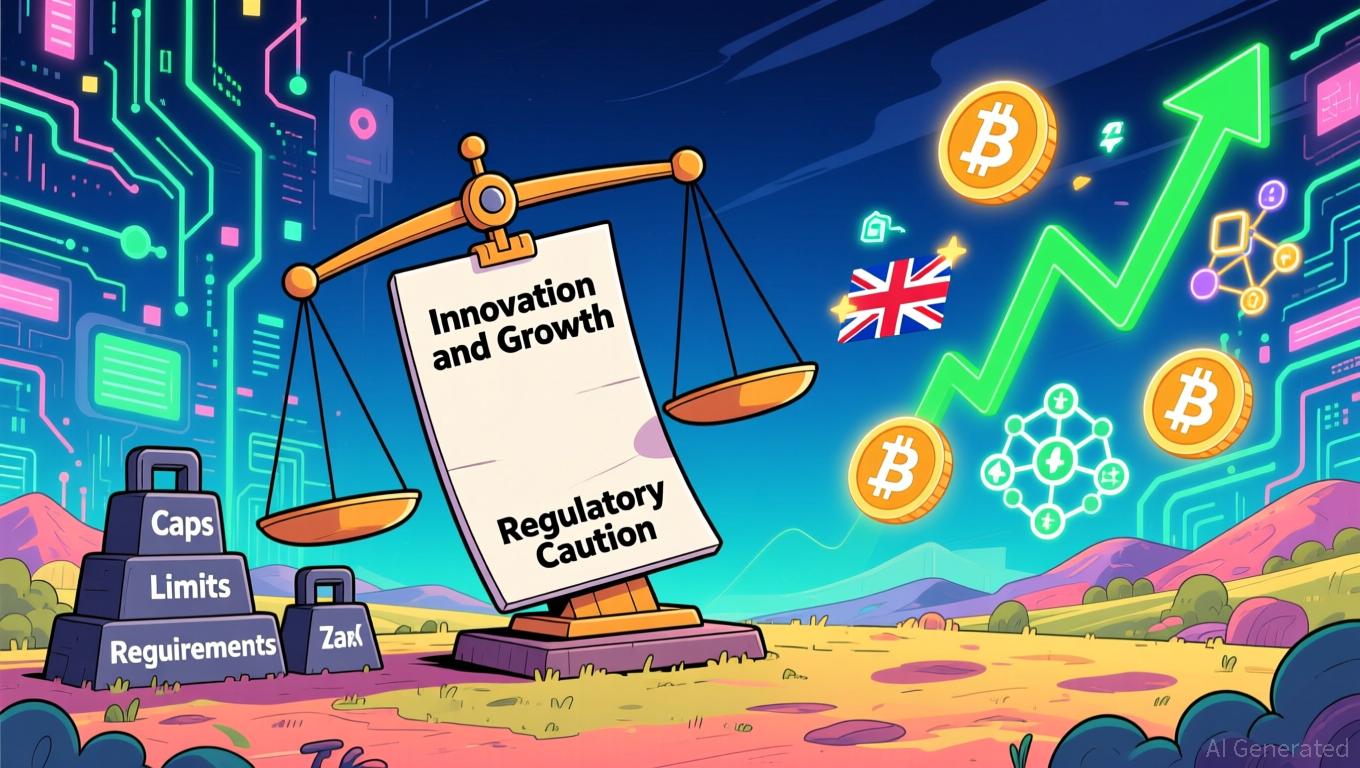Two-Tiered U.S. Economy: Technology Leaders Prosper While Employees Face Hardships
- U.S. economy shows "K-shaped" divergence: tech giants and high-income groups thrive while low-income workers and small businesses lag. - Magnificent Seven tech firms' earnings expectations rose 4% vs. 1.5% decline for S&P 500 peers, driven by AI and stock wealth concentration. - Wage theft lawsuits and labor law loopholes exacerbate inequality, with 68% of Americans living paycheck-to-paycheck as of October 2025. - Critics warn systemic instability risks grow without addressing wage stagnation, enforceme
Economists and market observers are increasingly noting that the U.S. economy is splitting into a "K-shaped" pattern, where affluent households and major tech firms continue to thrive, while those with lower incomes and small businesses find it difficult to keep up. This growing divide, fueled by concentrated gains in artificial intelligence and the stock market, has left millions of Americans in what some call a "sea of despair," with issues like wage theft and weak enforcement of labor laws making the gap even wider
The idea of a K-shaped economy—where economic paths split rather than come together—has become more pressing as 2025 progresses. Research from Apollo Academy, led by chief economist Torsten Slok, points out that profit forecasts for the so-called "Magnificent Seven" tech leaders—Apple,
At the same time, disputes over pay and wage violations highlight the difficulties faced by lower-wage workers. The Supreme Court recently upheld a $22 million wage award against battery producer East Penn Manufacturing Co., refusing to settle a legal disagreement over how to calculate paid work hours
The personal toll of this economic split is significant. In Australia, a coal miner’s legal action against BHP and its labor hire partners alleges a $2.5 billion wage theft operation, with claims that the companies falsified records and misclassified workers to avoid paying proper wages
Some critics say that policymakers are failing to address the fundamental drivers of this inequality. Mark Zandi, chief economist at Moody’s, points out that the wealth effect from rising stock prices—mainly benefiting the rich—has added nearly half a percentage point to GDP growth over the past year, but warns that this growth cannot last if most workers are left out
The effects of the K-shaped economy go beyond individual families. Companies that serve budget-minded shoppers—such as discount chains and private-label brands—are prospering, while luxury and non-essential sectors are encountering challenges
As the gap widens, the threat of broader instability increases. Economists caution that a K-shaped recovery, driven by spending from the wealthy and growth in tech, hides deeper weaknesses. Unless issues like stagnant wages, weak labor law enforcement, and limited access to funding for small businesses are addressed, the U.S. economy could face long-term imbalances with serious consequences
Disclaimer: The content of this article solely reflects the author's opinion and does not represent the platform in any capacity. This article is not intended to serve as a reference for making investment decisions.
You may also like
Airdrop Combines Equities and Internet Memes to Draw in Individual Investors
- Datavault AI (DVLT) and Scilex (SCLX) will airdrop Dream Bowl 2026 meme coins to shareholders on December 8, aiming to attract retail investors through stock-meme fusion. - The one-meme-per-share distribution triggered a 4.91% pre-market stock surge for DVLT , while short sellers face mandatory meme coin delivery obligations post-November 24 ex-dividend date. - The initiative builds on a $150M Bitcoin partnership with Scilex, leveraging blockchain trends and aligning with broader market optimism for cryp
UK’s Conservative Approach to Stablecoin Regulation May Leave It Lagging Behind International Competitors
- UK regulators propose strict stablecoin caps (£20k/individuals, £10m/businesses) and 60% UK debt backing to mitigate risks, sparking concerns over stifled innovation. - Critics argue 40% unremunerated central bank deposit requirement threatens UK competitiveness against US and Singapore's more flexible frameworks. - Global rivals like the US (GENIUS Act) and EU (MiCAR) advance stablecoin adoption, while UK's delayed finalization risks losing first-mover advantage in digital finance. - Industry leaders ur

UNI token rises after governance proposal for fee switch
Singapore tests tokenized government bonds and prepares stablecoin legislation for 2026
